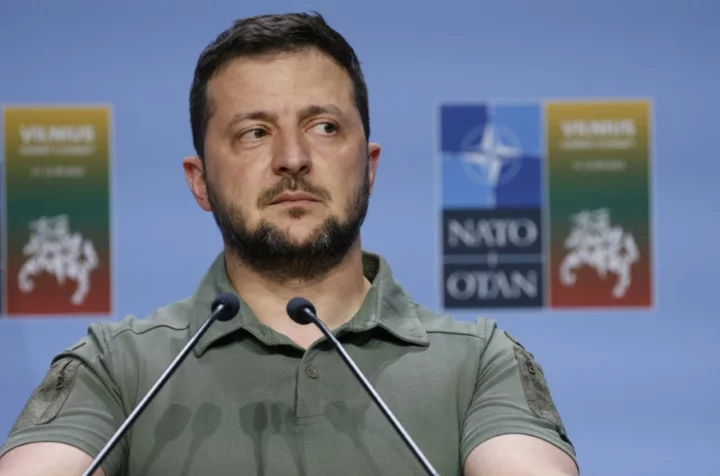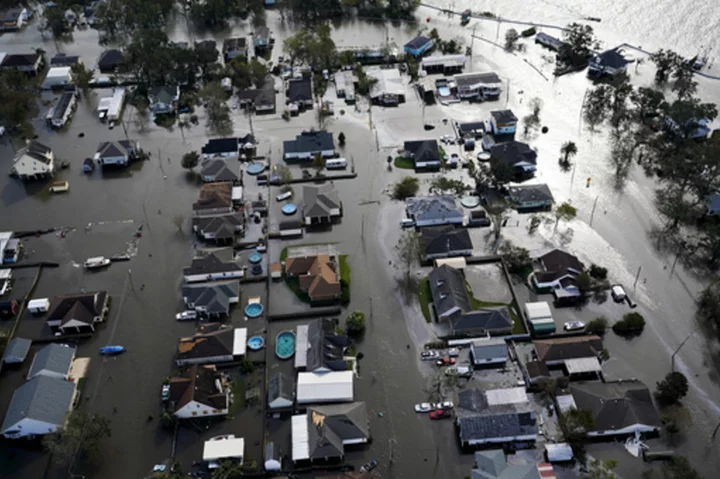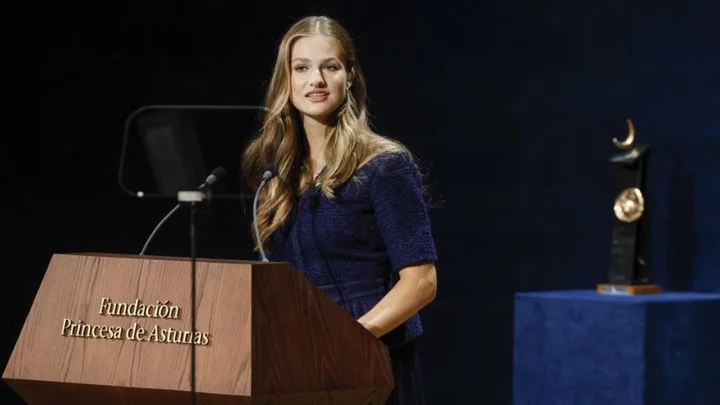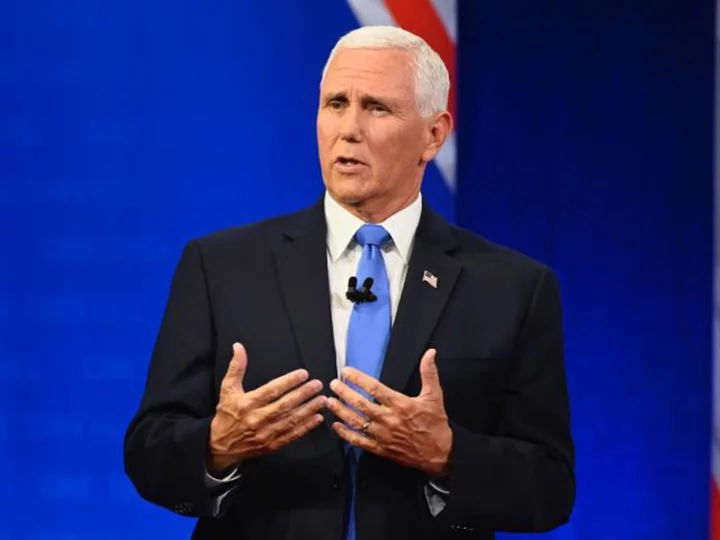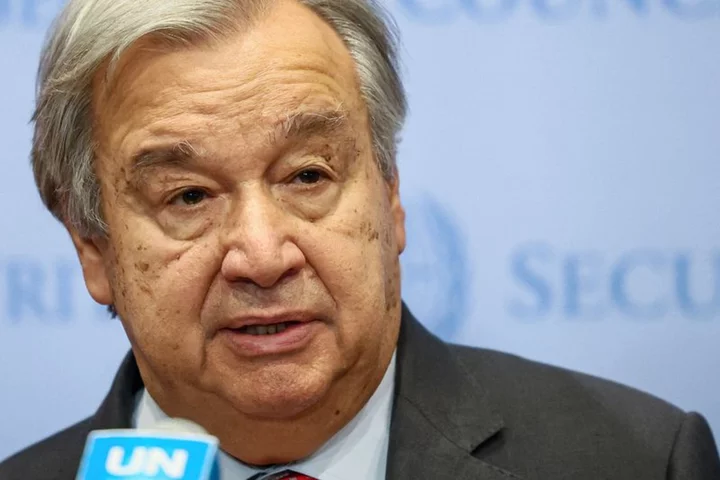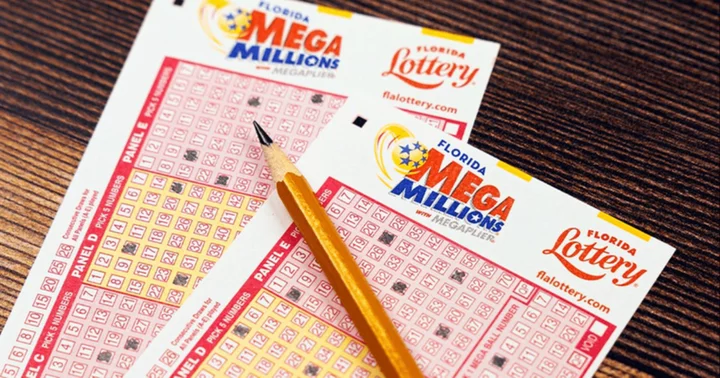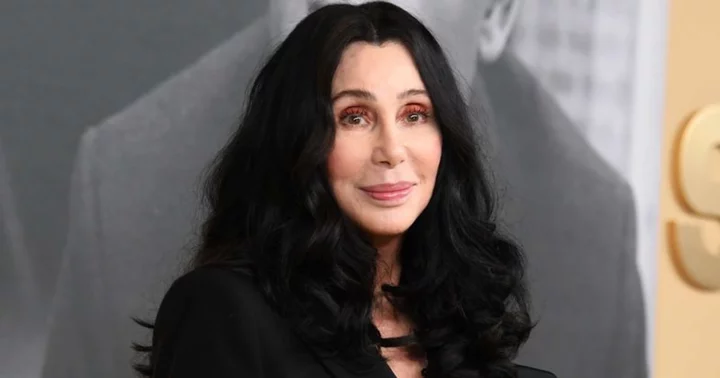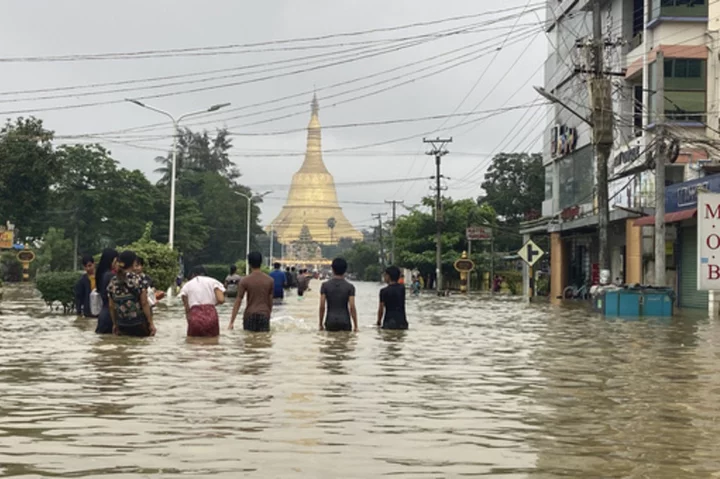Russia responded to NATO vows of support for Ukraine with air strikes and nuclear sabre-rattling on Thursday, as US President Joe Biden held talks in the alliance's newest member Finland.
Biden was meeting Nordic leaders in Helsinki a day after a summit in Lithuania in which NATO pledged its backing for Kyiv but failed to offer it a timeline for membership.
Moscow's riposte came in the form of its latest aerial assault on Ukraine, with Kyiv saying early Thursday it had destroyed 20 Russian attack drones and two cruise missiles.
At least four people were wounded in the capital, where most of the Iranian-made drones were destroyed, Kyiv's mayor said.
In a sign of its anger at Western backing for Kyiv, Moscow said it would regard F-16 fighter jets sent to Ukraine as a "nuclear" threat because of their capacity to carry atomic bombs.
"Russia cannot ignore the ability of these aircraft to carry nuclear weapons. No amount of assurances will help here," Foreign Minister Sergei Lavrov was quoted as saying by the Russian foreign ministry.
The Netherlands and Denmark are leading a plan to train Ukrainian pilots on using the US-made aircraft as part of an 11-nation coalition, after Washington authorised the move.
Russia has repeatedly engaged in nuclear rhetoric since its February 2022 invasion of its pro-Western neighbour Ukraine.
- 'Will not waver' -
The US president was holding talks in the Finnish capital after G7 powers vowed to back Ukraine for as long as it takes to beat Russia.
Finland, which shares a 1,300 kilometre (800-mile) border with Russia, ended its historic military non-alignment and joined NATO following Moscow's invasion of Ukraine.
"Together, we're standing with the brave people of Ukraine, as they defend themselves against Russia's brutal assault," Biden told journalists at the start of the meeting with the leaders of Denmark, Finland, Iceland, Norway and Sweden.
Climate, "the only existential threat humanity faces", would also be a major topic, he said.
The leaders later issued a joint statement pledging their "support for Ukraine for as long as it takes" and to build the "widest possible international support for a just and lasting peace in Ukraine."
Biden is the first US president to visit Helsinki since Donald Trump's summit five years ago with Russian President Vladimir Putin.
But the trip comes after NATO leaders dashed Ukrainian leader Volodymyr Zelensky's hopes for a clear timeline to join the military alliance, saying they would offer an invite only when "conditions are met".
Instead, G7 nations later offered Ukraine a package of long-term security commitments, involving bilateral deals between Kyiv and the world's richest nations.
"We will not waver," US President Joe Biden said in a speech in Vilnius aimed at showing resolve to Putin after meeting Zelensky at the NATO summit.
"Putin still doubts our staying power. He's still making a bad bet that the conviction and the unity among the United States and our allies and partners will break down."
- 'Complicated' -
Zelensky insisted the promises amounted to a "significant security victory" but did not disguise the fact that he would have preferred a timetable for Ukraine to become its 32nd member after the war is over.
On the sidelines of the NATO summit, Australia pledged to send an additional fleet of 30 armoured Bushmaster infantry vehicles at a cost of $67 million.
But on Thursday, Australia's defence minister cast doubt over a proposal to bolster Ukraine's military with retired fighter jets, saying Kyiv's request for extra air power posed a "complicated question".
In Kyiv, recently-supplied Western weapon systems were insufficient to cover the whole country, the spokesman for Ukraine's air forces Yuriy Ignat said after the overnight strikes.
"We do not have means to destroy ballistic missiles," Ignat told national television on Thursday morning.
Ukraine's air force said it was still seeking information on the "consequences" of an Iskander-M ballistic missile launch by Russia from occupied Crimea.
burs-dk/lcm

